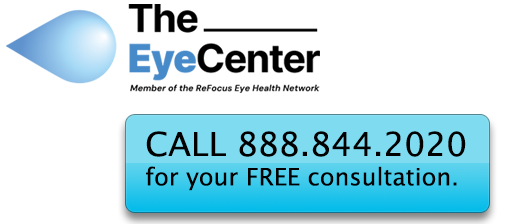Chemical Eye Injury
Vignette: Trivia – Chemicals In The Eye (Video)
Printable Version (PDF)
One of the most frequent work-related injuries is damage to the eye or eyes from materials that a worker is using. Often, in the case of construction and landscape workers, debris from equipment is thrown into the eye when not protected. The same goes for people who work with chemicals. Chemical injury to the eyes is not just a work-related problem. Many household products can find their way into the eyes of adults and children alike.
Common household agents that can damage the eyes:
- Ammonia
- Disinfectants
- Oven Cleaners
- Drain Cleaners
- Bleach
- Detergents
- Makeup and Perfumes
- Yard Fertilizer and Weed Killers
Most chemical injuries to the eyes will cause mild irritation and can be resolved by flushing the eye out with water. Stronger agents such as acids can cause long-term structural damage to the eye, resulting in visual impairment.
What Symptoms Will Chemicals in the Eye Cause?
- Burning (sometimes severe if its a stronger agent like drain cleaner)
- Tearing
- Pain
- Redness
- Blurred Vision
Go to the emergency room immediately if symptoms do not subside after flushing with water or if vision is significantly impaired.
Damage to the Eye from Chemical Injury Can Include:
- Swelling of the cornea and conjunctiva
- Burns (either acid or alkali burns)
- Infection
- Scar tissue altering vision
- Increased intraocular pressure (glaucoma)
- Dry eye syndrome
- Worst case, loss of vision or the eye itself
Treatment
Flushing the eye or eyes with water should begin immediately. The emergency room technician or physician will continue flushing the eye(s) with water, saline or Ringers solution until the pH (acidity) of the eye returns to normal. Pain relief may be administered by dropping anesthetic directly into the eye. Long-term treatment may not be determined until the eye has been given several days to heal. You will probably leave the emergency room with some type of patch over your eye to relieve additional pressure and light strain.
IMPORTANT POINT TO REMEMBER:
If you know you will be working with hazardous chemicals, wear goggles or some type of protective eye-wear. Always keep chemicals out of the reach of children.
This educational material is provided by Dialog Medical.
© Copyright 2005 Dialog Medical
All Rights Reserved
The Eye Center
Call Toll Free 1.888.844.2020

